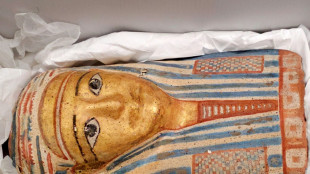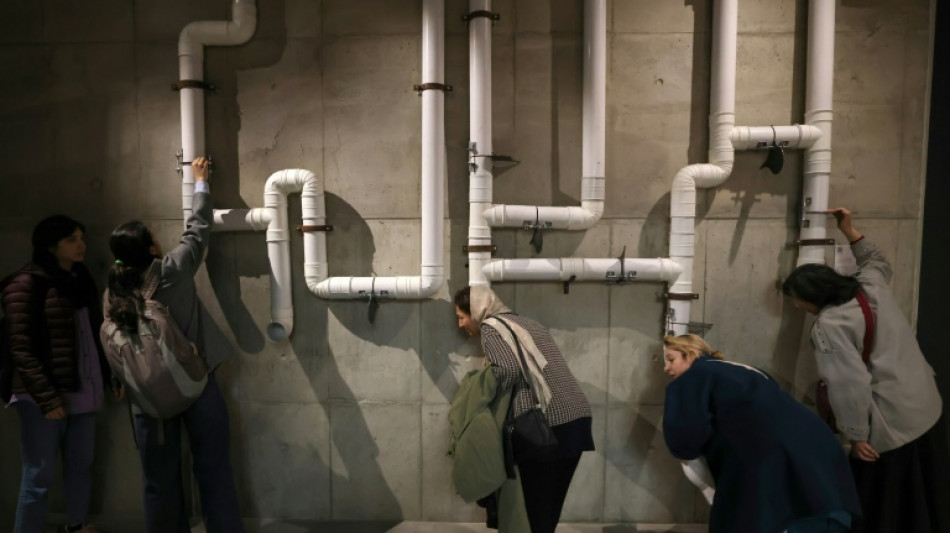
-
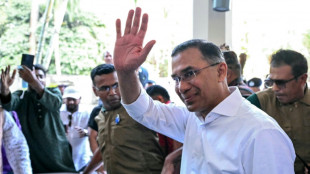 Bangladesh PM-to-be Tarique Rahman and lawmakers sworn into parliament
Bangladesh PM-to-be Tarique Rahman and lawmakers sworn into parliament
-
At least 14 killed in spate of attacks in northwest Pakistan
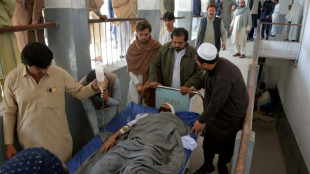
-
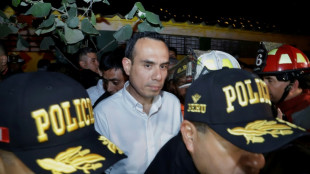 Peru Congress to debate impeachment of interim president
Peru Congress to debate impeachment of interim president
-
Bleak future for West Bank pupils as budget cuts bite
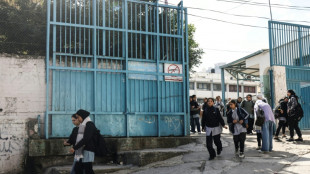
-
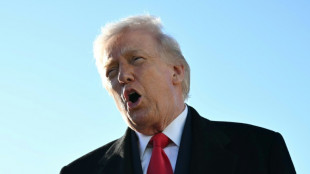 Oil in spotlight as Trump's Iran warning rattles sleepy markets
Oil in spotlight as Trump's Iran warning rattles sleepy markets
-
Why are more under-50s getting colorectal cancer? 'We don't know'

-
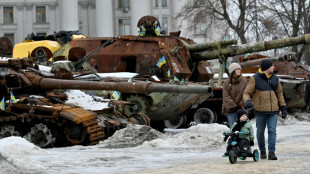 Moscow, Kyiv set for Geneva peace talks amid Russian attacks
Moscow, Kyiv set for Geneva peace talks amid Russian attacks
-
Iran, United States set for new talks in Geneva
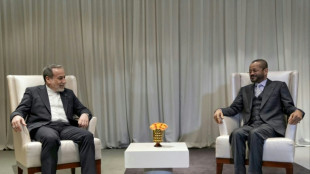
-
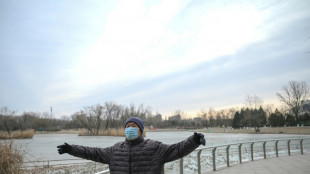 China has slashed air pollution, but the 'war' isn't over
China has slashed air pollution, but the 'war' isn't over
-
India's tougher AI social media rules spark censorship fears
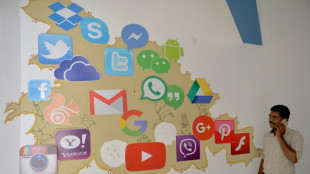
-
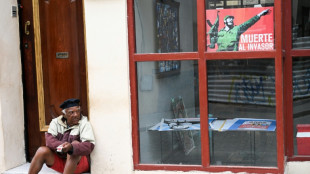 Doctors, tourism, tobacco: Cuba buckling under US pressure
Doctors, tourism, tobacco: Cuba buckling under US pressure
-
Indonesia capital faces 'filthy' trash crisis
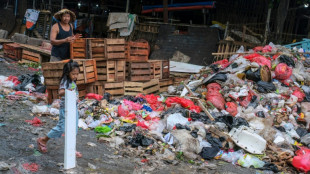
-
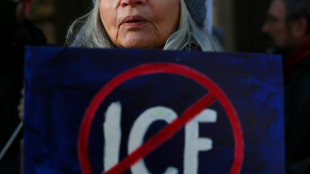 France grants safe haven to anti-Kremlin couple detained by ICE
France grants safe haven to anti-Kremlin couple detained by ICE
-
Nikon Introduces The Ultra Compact Trailblazer II Binocular

-
 The Venture Debt Conference Announces Speakers for April 16 Event in New York
The Venture Debt Conference Announces Speakers for April 16 Event in New York
-
Frederick Wiseman, documentarian of America's institutions, dead at 96
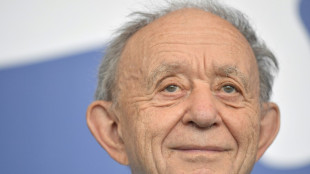
-
 Gu pipped to Olympic gold again as Meillard extends Swiss ski dominance
Gu pipped to Olympic gold again as Meillard extends Swiss ski dominance
-
Copper powers profit surge at Australia's BHP
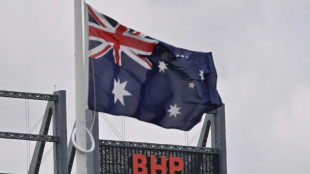
-
 China's Gu defiant after missing out on Olympic gold again
China's Gu defiant after missing out on Olympic gold again
-
Remains of Colombian priest-turned-guerrilla identified six decades later
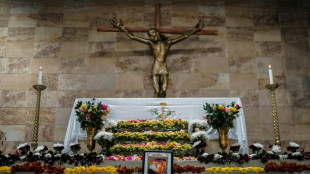
-
 USA bobsleigh veteran Meyers Taylor wins elusive gold
USA bobsleigh veteran Meyers Taylor wins elusive gold
-
Miura and Kihara snatch Olympic pairs gold for Japan
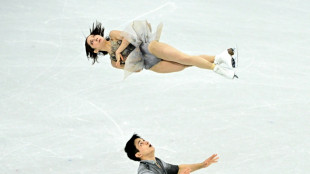
-
 Gu pipped to gold again as Meillard extends Swiss ski dominance at Olympics
Gu pipped to gold again as Meillard extends Swiss ski dominance at Olympics
-
Barca suffer title defence blow in Girona derby defeat

-
 Brentford edge out sixth-tier Macclesfield in FA Cup
Brentford edge out sixth-tier Macclesfield in FA Cup
-
Canada's Oldham wins Olympic freeski big air final, denying Gu gold

-
 France loosens rules on allowing farmers to shoot wolves
France loosens rules on allowing farmers to shoot wolves
-
USA thrash Sweden to reach Olympic women's ice hockey final

-
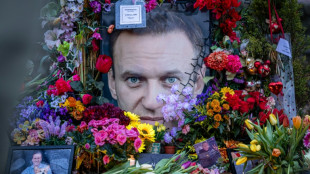 Russian poisonings aim to kill -- and send a message
Russian poisonings aim to kill -- and send a message
-
France's Macron eyes fighter jet deal in India
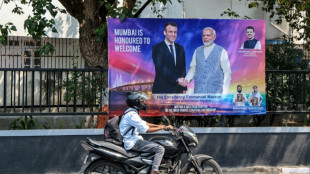
-
 Arsenal to face third-tier Mansfield, Newcastle host Man City in FA Cup
Arsenal to face third-tier Mansfield, Newcastle host Man City in FA Cup
-
Robert Duvall: understated actor's actor, dead at 95
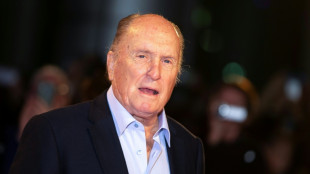
-
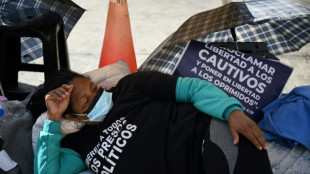 'How long?': Day Three of hunger strike for Venezuelan political prisoners' release
'How long?': Day Three of hunger strike for Venezuelan political prisoners' release
-
Berlinale: Film director Mundruczo left Hungary due to lack of funding
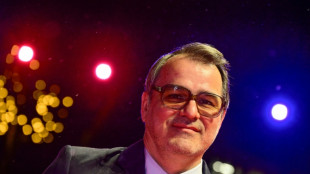
-
 Malinin talks of 'fighting invisible battles' after Olympic failure
Malinin talks of 'fighting invisible battles' after Olympic failure
-
'Godfather' and 'Apocalypse Now' actor Robert Duvall dead at 95
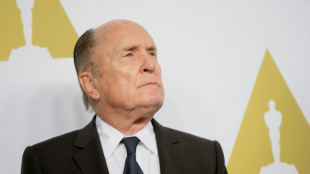
-
 Sinner serves up impressive Doha win on his return
Sinner serves up impressive Doha win on his return
-
Luis Enrique dismisses 'noise' around PSG before Monaco Champions League clash
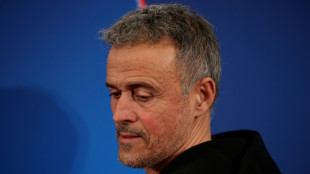
-
 Grief-stricken McGrath left in shock at Olympic slalom failure
Grief-stricken McGrath left in shock at Olympic slalom failure
-
Brignone leads charge of veteran women as Italy celebrates record Olympic haul

-
 Sri Lanka's Nissanka leaves Australia on brink of T20 World Cup exit
Sri Lanka's Nissanka leaves Australia on brink of T20 World Cup exit
-
England match-winner Jacks proud, confident heading into Super Eights

-
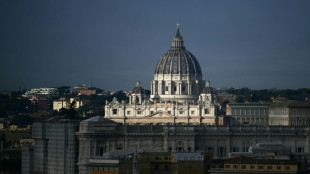 St Peter's Basilica gets terrace cafe, translated mass for 400th birthday
St Peter's Basilica gets terrace cafe, translated mass for 400th birthday
-
Meillard hails Swiss 'golden era' after slalom win caps Olympic domination

-
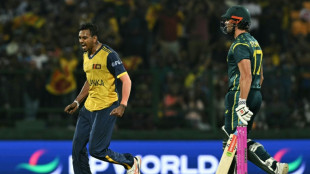 Sri Lanka fight back after strong start by Australia's Marsh, Head
Sri Lanka fight back after strong start by Australia's Marsh, Head
-
Kovac calls on Dortmund to carry domestic 'momentum' into Champions League

-
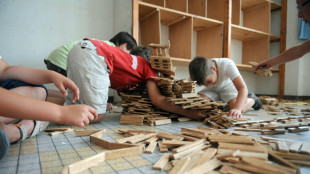 Dutch inventor of hit game 'Kapla' dead at 80: family
Dutch inventor of hit game 'Kapla' dead at 80: family
-
Benfica's Mourinho plays down Real Madrid return rumour before rematch
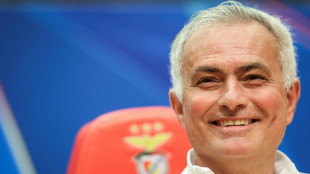
-
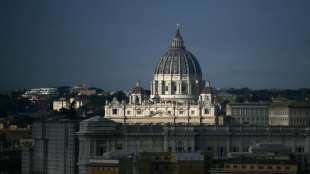 St Peter's Basilica gets terrace cafe for 400th anniversary
St Peter's Basilica gets terrace cafe for 400th anniversary
-
Meillard extends Swiss Olympic strangehold while Gu aims for gold


Iran's early recordings revive forgotten sound heritage
In a century-old building in Tehran, Saeed Anvarinejad turned the dial of a vintage radio to tune into some of Iran's earliest recorded sounds, some serving as reminders of the seismic changes that shaped the country's history.
Along with a team of fellow enthusiasts, he spent months tracking down the earliest recordings of Iranian music, speeches, interviews, theatrical plays, radio broadcasts and even the hum of daily life from more than a century ago up to the present day.
"Sound is a phenomenon we pay little attention to... although it's very important," said Anvarinejad, one of the organisers of the "SoundScape" exhibition.
And "the era of early sound recording in Iran is a very important time in the socio-political history of the country".
He highlighted the emotional power of early voice recordings, saying they captured "in a very raw and pure way... the feeling that people have at that moment," unlike written records.
According to Anvarinejad, the oldest surviving sound recordings from Iran date back to 1898 and 1899, during the reign of Mozaffar al-Din Shah of the Qajar dynasty, which reigned over the country from the late 18th to the early 20th century.
His rule saw the unfolding of the Constitutional Revolution, a pivotal moment in Iran's political transformation that established a parliament and constitutional monarchy.
"It was a time when... a new order was taking shape in the Iranian mind and very important things were happening politically, socially and culturally," he added.
"We thought it would be good to have a new approach to the sound (from that time) and engage audiences with it."
Upon tuning the wooden-framed antique radio, a chilling broadcast announced the overthrow of prime minister Mohammad Mosaddegh in 1953, who had pushed for the nationalisation of Iran's oil industry sparking a coup d'etat orchestrated by the United States and Britain.
"This is Tehran! Good news! Good news! People of the cities of Iran, be awake and alert, the traitor Mosaddegh has fled!" crackled the voice of a radio anchor.
- 'Mysterious void' -
Other audio included Iran's first recorded call to prayer in either 1912 or 1913, and the 1959 report on the death of Qamar, the first woman singer to perform in public in the country.
One striking installation at the exhibition involved a mechanical device mounted on a concrete wall with gears, chains, wheels and a lever which played old recordings of the stringed tar instrument through retro telephone handsets.
Another, "Mowj Negar", featured printed sound waves arranged in three rows on one wall, with a metal device which moved along the waves.
When moved, the device activates melodies from the Qajar and early Pahlavi (1925-1979) eras that once echoed through Iran's grand palaces and bustling city streets.
Nearby stood a wooden cabinet named "The Silent Closet", displaying a series of photos from the First World War -— but without a single accompanying sound.
"There are no sound recordings from Iran during this period, not because technology was unavailable, but likely because the country was in such turmoil that recording sound was not a priority," said Atabak Axon, another exhibition organiser.
"There was a 12-year silence that remains a mysterious void in Iran's auditory history."
For centuries, sound has played a central role in Persian culture, connecting belief with poetry and identity.
For 21-year-old Sarvin Faizian, visiting the exhibition with friends was a deeply moving experience "as if I was experiencing my parents' past."
Similarly, Fatemeh Sadeghi described feeling overwhelmed by nostalgia, while 63-year-old Kamran Asadi found the exhibition unexpectedly personal.
"It is a very good and intimate atmosphere for me," he said, lingering on an old song playing in the background.
"It is good for the younger generation to learn where Iran's heritage of music and art came from."
Th.Berger--AMWN

